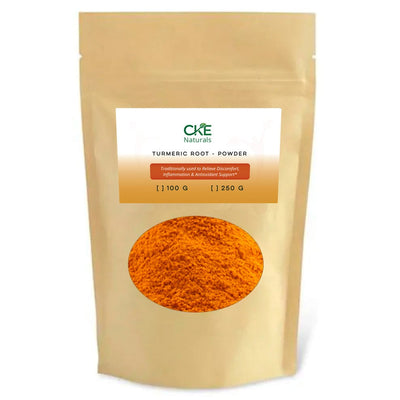Herbal Remedies for Stress and Anxiety: Nature's Solutions to Modern-Day Challenges
While mild anxiety and stress may be normal challenges to our day-to-day lives, they can reach a point where it hinders our ability to successfully and healthily function in society. You don't have to be diagnosed with an anxiety disorder to feel overburdened by the unwanted, recurring thoughts and anticipations of how we plan to navigate throughout the day. A thriving reputation and career are not everything if it is at the expense of your mental state.
Fortunately, you don't have to sacrifice your career or psychological health to prevent a debilitating mental issue; you can incorporate healthy and natural remedies into your lifestyle to ensure you get the best out of your day, upcoming years, and life ahead.
The market is filled with natural supplements and herbs that have proven to be effective. They come in the form of raw materials, ingredients that can be implemented into your diet, or even Stress Liquid Extract.
Natural herbs and supplements can also be ingested through different methods, either individually or through an amalgamation of herbs creating a Stress Relief tincture to alleviate your symptoms in the most effective way. Let's look at seven herbal remedies that are an excellent option to help reduce stress and anxiety.
Ashwagandha
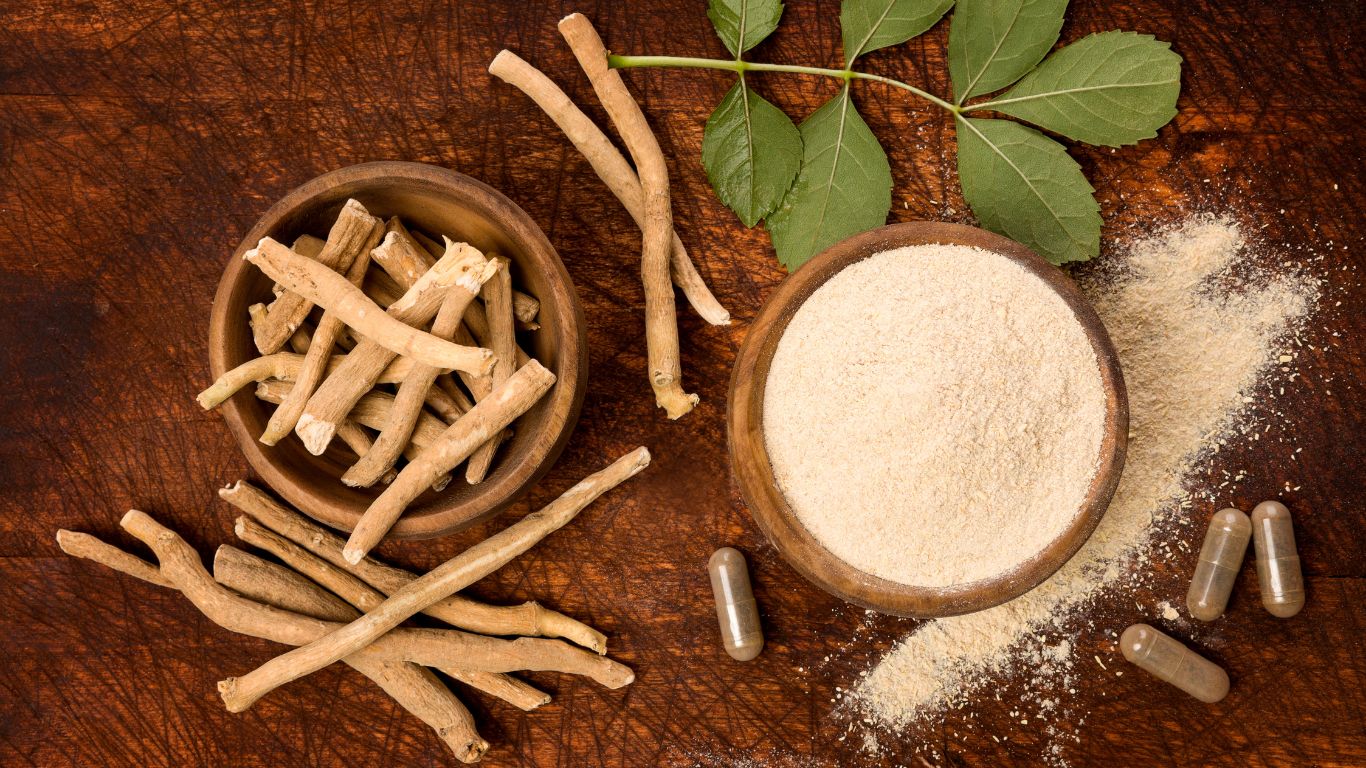
Ashwagandha, scientifically known as Withania somnifera, is a small shrub with roots widely used as a Stress Support Extract or medicinal herb in a traditional Indian medicine called Ayurveda.
Ashwagandha is an adaptogenic herb with a history of usage for the treatment of anxiety. Some active compounds in this have been shown to possess anti-stress, anti-inflammatory, and antioxidant properties.
The peer-reviewed Indian Journal of Psychological Medicine published an article in 2012 claiming that test subjects who suffered from chronic stress experienced a significant reduction in anxiety after a 60 days dosage of 300mg of ashwagandha root extract when taken twice daily.
Researchers concluded that the herb could safely and effectively alleviate an individual's stress or enhance their resistance to it. Research also suggests ingesting at least 600 mg of ashwagandha per day.
Lemon Balm
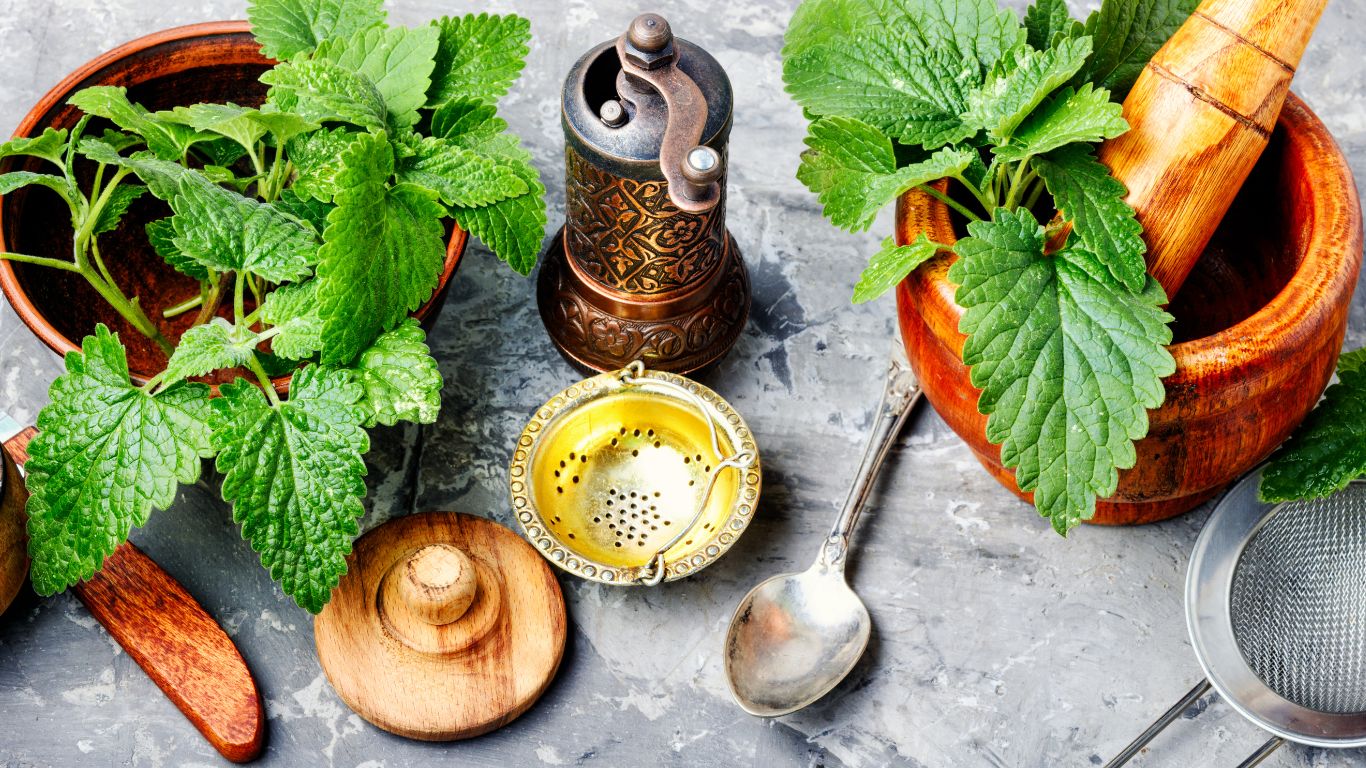
"The gladdening herb," more commonly known as lemon balm, has been used for hundreds of years in Western Europe to reduce various stress-related complications, promote sleep, alleviate anxiety, and ease discomfort from indigestion. It also works when combined with other relaxing herbs like valerian and chamomile.
A study conducted with 67 adults who struggled with insomnia found that taking supplements containing 1,000 mg of lemon balm and 400 mg of Lavender each night for four weeks significantly improved insomnia symptoms, anxiety, and depression scores.
There is no strict method to ingest lemon balm to gain results. It's versatile and can be a steep dried lemon balm in hot water to form tea, make a tincture by dropping 15 - 30 drops into a smoothie, juice, or cool water, turn it into a capsule, or even apply it as a lotion to enjoy the mild sedative effects.
Kava Kava
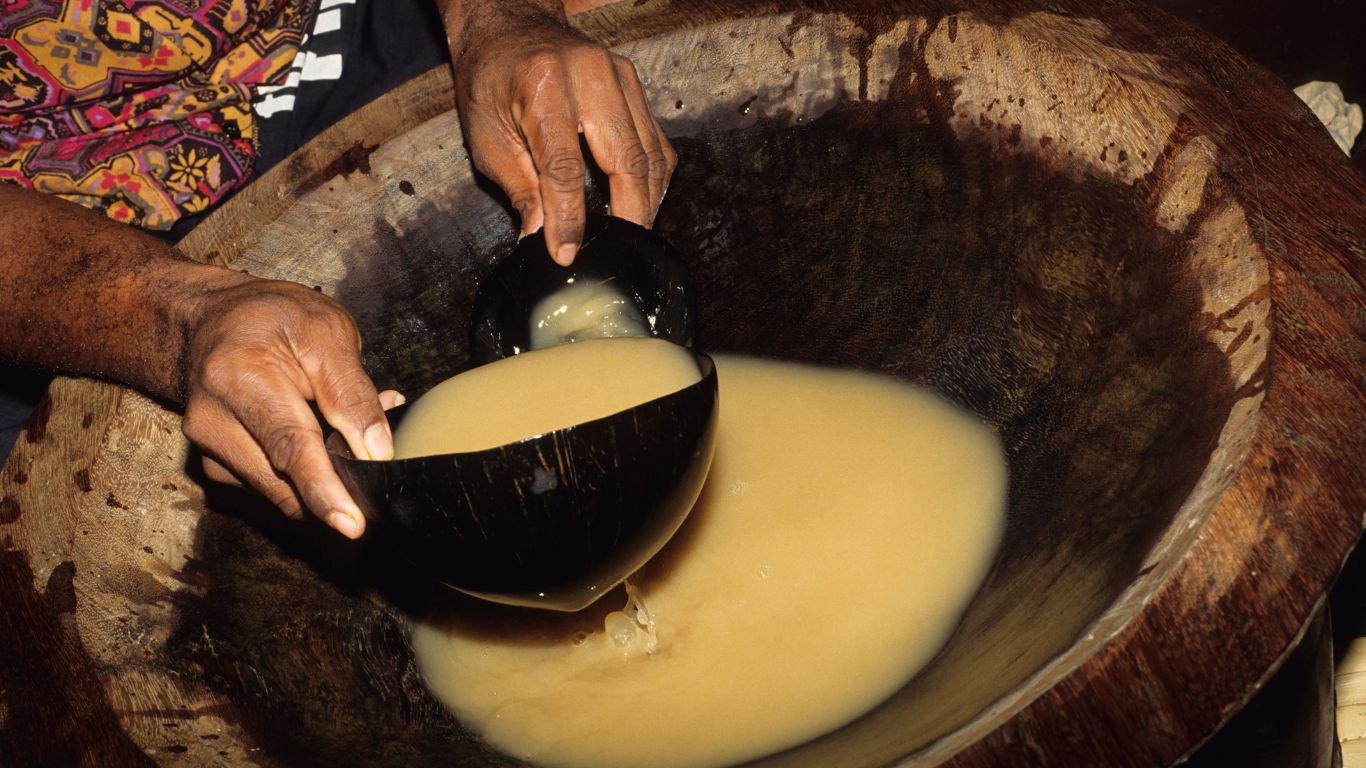
Piper methysticum, or Kava Kava, is a shrub native to the Pacific Ocean islands. People from these islands use this popular herb as a stress-relieving ceremonial beverage. They are commonly taken in the form of a liquid by dissolving a drop or two into water or a delicious smoothie, but they can also be transformed into a capsule, depending on your preferred method of ingestion.
Kava root extract is widely considered a safe supplement; however, it's important to mention that regular usage may lead to liver damage. Conversely, the World Health Organization has called for a reevaluation of this idea by scientists.
Chamomile
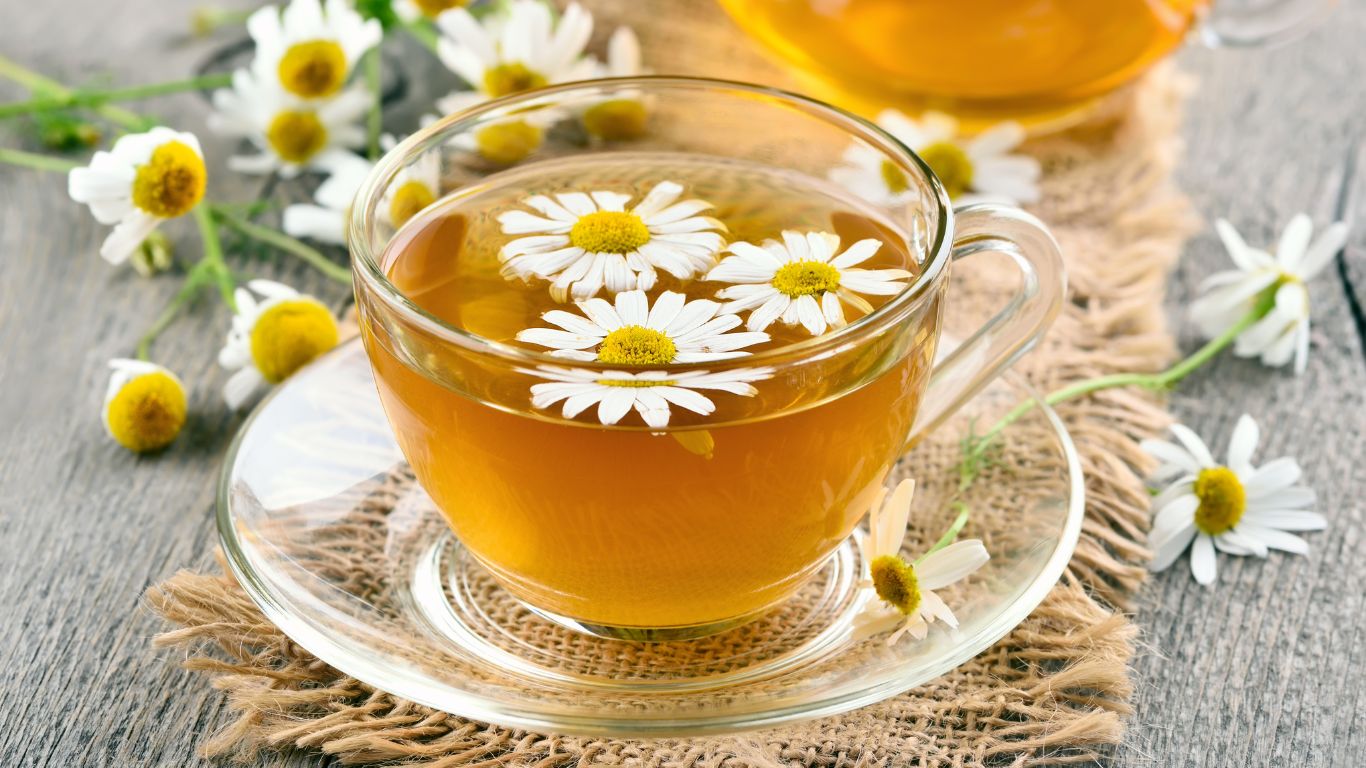
Chamomile is the name given to several daisy-like plants cultivated for their flowers. These flowers are dried and brewed in hot water to create the popular bedtime beverage, chamomile tea. Generations of herbal tea drinkers love this beverage because of its calming effect. Chamomile powder contains various beneficial compounds, well known for promoting relaxation, especially in people with anxiety. To this day, scientists increasingly acknowledge chamomile as an effective treatment for anxiety.
In a 5-year study (2010-2015) of the long-term effects of chamomile therapy for moderate to severe generalized anxiety disorder (GAD) at the University of Pennsylvania, subjects of the treatment group received 500mg capsules of chamomile extract three times daily, while the control group received placebos. The authors concluded through the study that chamomile produced a clinically meaningful reduction in GAD symptoms.
Passion Flower
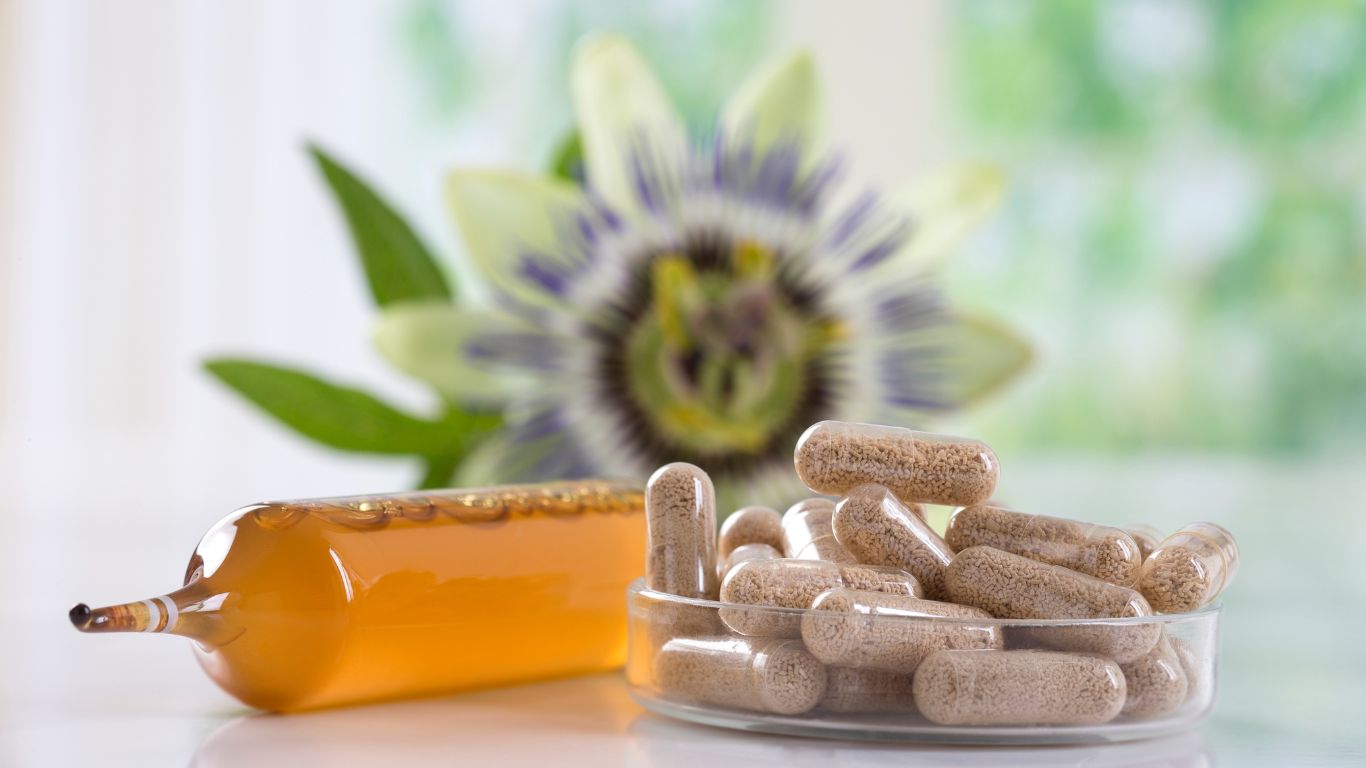
Another common ingredient in mental wellness supplements is Passionflower or Passiflora incarnataits. Its potential to help reduce feelings of stress and anxiety has been globally recognized for centuries, and it's still being used to treat anxiety.
Passionflower is a flowering vine native to the Americas and recognizable by its distinctive corona that may be colored purple, yellow, and white. This flower has highly celebrated ornamental value and is also considered a natural alternative to anti-anxiety medications.
It's important to note that passionflower may interact with several medications, so talk with your healthcare professional before taking passionflower supplements.
Lavender
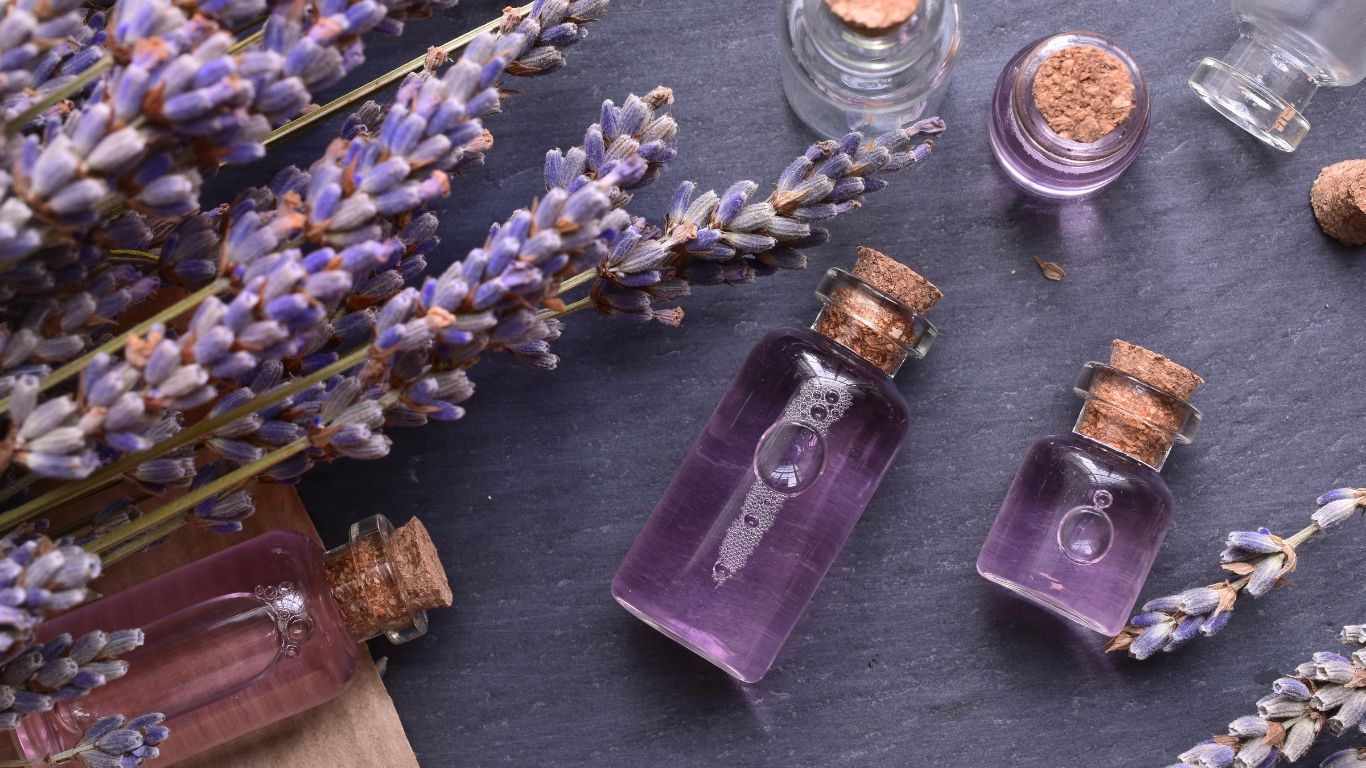
A well-known flower with a distinctive purple hue and pleasant fragrance, widely used in cooking and cosmetics, called Lavender, has been believed since ancient times to have soothing properties. Lavender oil contains terpenes which are known to have a calming effect on the brain.
Additionally, the oil distilled from the flower is a popular choice for aromatherapists, contributing to the soothing effect that can relieve anxiety in individuals. In fact, modern scientific research has validated this belief.
A randomized controlled trial published in 2010 indicates that Silexan, a lavender oil preparation manufactured for oral use, is at least as effective as lorazepam (a benzodiazepine), a drug used to treat GAD.
Lavender oil can be used in multiple ways, such as tea, in the form of a hot bath, mixing it with a base oil for massages, and even a few drops on your pillow before bed can do the trick.
Turmeric
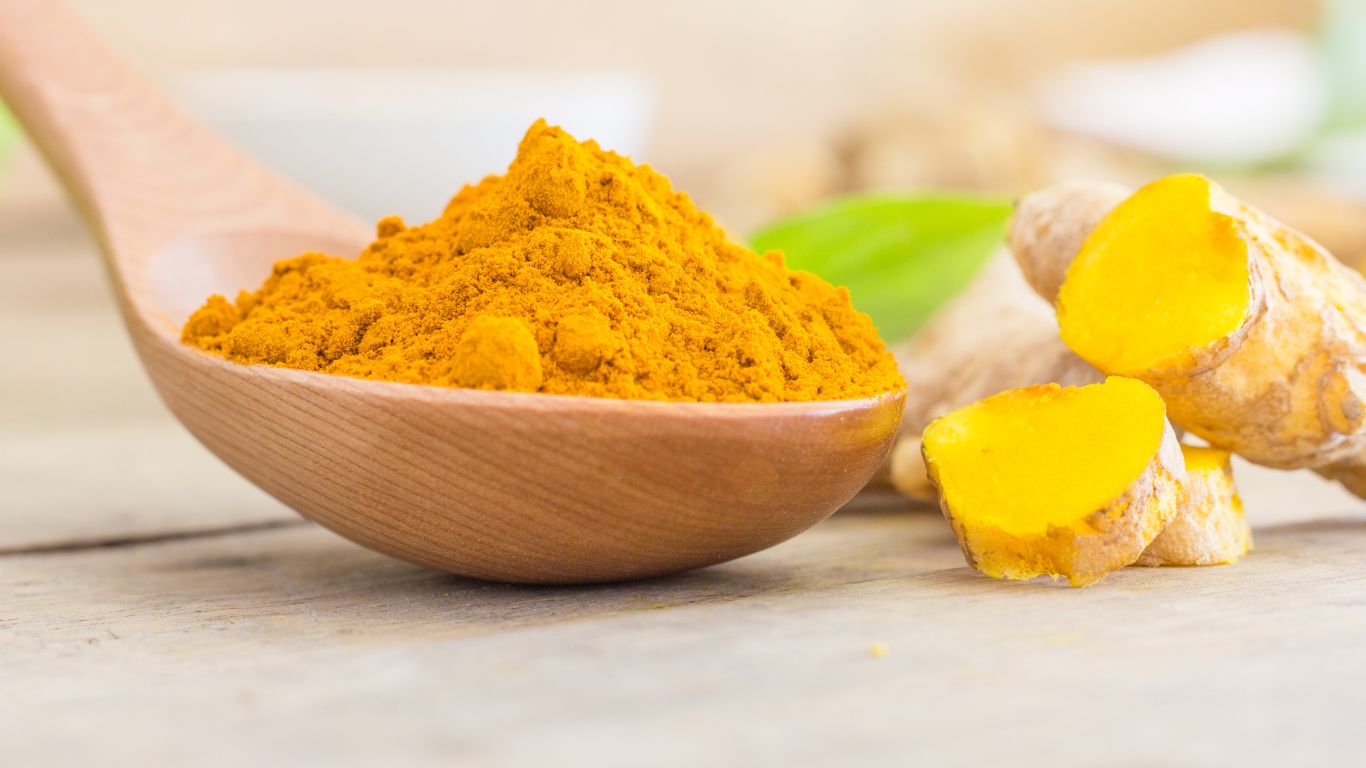
Turmeric has been found to be beneficial in treating anxiety and depression and has also been used for centuries in India and China to treat stress, infections, and skin diseases due to its high level of advantageous properties.
Turmeric contains phytochemicals that can reverse inflammation and an active chemical called curcumin, which has powerful anti-inflammatory properties and has been found to be effective in reducing anxiety. Turmeric can also be ingested in multiple forms like tea, with roasted vegetables, stirred into the rice, and blended into smoothies.
Bottom Line
Ashwagandha is an adaptogenic herb with a history of usage for the treatment of anxiety. Lemon balm is also a popular treatment for anxiety that is backed by a study and can be ingested through tea or juice or enjoyed as a lotion. People from the Pacific Ocean islands use kava herb as a stress-relieving ceremonial beverage, just like chamomile, which contains a wide range of beneficial compounds, well known for promoting relaxation, especially in people with anxiety. Other popular flowers that assist in reducing anxiety are passion flowers and Lavender since they are considered a natural alternative to anti-anxiety medicines and a suitable relaxation method. Finally, a herb that possesses various beneficial health properties and is commonly used as an anti-inflammation as well as helping to combat anxiety is Turmeric.
We hope this article proved insightful to you.


